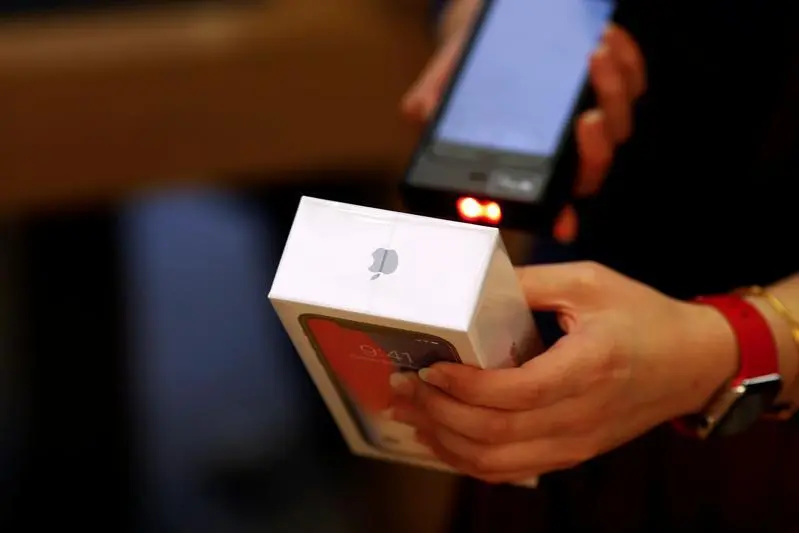PHOTO
HONG KONG - Apple boss Tim Cook could turn out to be the yin to Yahoo's Jerry Yang. The link between technological eras is the matter of data privacy in China.
A few weeks ago, Apple began storing Chinese iCloud accounts inside the People's Republic. New rules meant it had to do so or stop providing the service. Cook reckoned his company could offer its customers better security than the alternatives. The change also means, however, that local law dictates what information authorities can demand. Human rights activists are worried. Amnesty International started a social-media campaign against Apple on March 22.
Facebook's latest data crisis is indicative of the risks. Mark Zuckerberg's social network lost more than $50 billion – or about a tenth – of its market value early last week after media investigations revealed that information from 50 million user profiles could have been misused by a political consultancy. Back when Yahoo was a web powerhouse, it suffered an even more relevant experience.
Emails the company handed over to the Chinese government in 2004 led to the imprisonment of journalist Shi Tao. Yahoo executives were hauled up to Capitol Hill in 2007 over the episode. With Shi's mother sobbing behind them, Yang and his colleagues were berated by Representative Tom Lantos: "While technologically and financially you are giants, morally you are pygmies." Mere hours before their testimony, shares of Chinese ecommerce outfit Alibaba.com, in which Yahoo had bought a 40 percent stake to further its PRC ambitions, had tripled in their Hong Kong debut.
Yang defended himself at the time by saying that to do business in China meant "we have to comply with local law." At a conference in Guangzhou last December, Cook struck a similar note: "When you go into a country and participate in the market, you are subject to the laws and regulation of that country."
Apple is by no means alone. Amazon, Microsoft and others are playing by Beijing’s rules, too. Nevertheless, Cook oversees the $854 billion gorilla of tech. He also rejected FBI demands to unlock an alleged killer's iPhone, establishing himself as a defender of privacy even if the nuances of the case were complicated. That makes him a bigger and easier target. Apple and its investors should brace for the blowback.
CONTEXT NEWS
- Amnesty International started a social media campaign against Apple and Chief Executive Tim Cook on March 22, accusing the company of making customer data vulnerable to scrutiny by the Chinese government.
- Apple started hosting Chinese iCloud user accounts in a Chinese data center on Feb. 28, saying it had to comply with new laws that require remote storage services to be operated by local companies and to be stored domestically for Chinese citizens. The company added that it had advocated against the laws.
- "Tim Cook is not being upfront with Apple's Chinese users when insisting that their private data will always be secure," said Nicholas Bequelin, Amnesty International's director of East Asia. "Apple's pursuit of profits has left Chinese iCloud users facing huge new privacy risks."
- Apple said it was very clear with customers about the change, alerting them in emails and other notifications in the eight weeks leading up to the new arrangement.
- "Each country in which we do business has its own customs, culture and legal process," the company said in a statement to Reuters. "While our values and beliefs don't change from country to country, we are subject to each country's laws."
(Editing by Richard Beales and Sharon Lam)
© Reuters News 2018





















